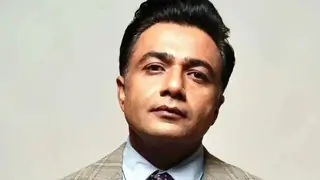Arjuna's exile is 13 months in the summary given by Vaishampayana at the beginning of Adi Parva, then 12 years.
‘“Then, for some reason, Dharmaraja Yudhishthira sent his brother Dhananjaya21 to theforest. He lived in the forest for one year and one month. He once went to Hrishikesha22 inDvaravati and there obtained as his wife Subhadra, with eyes like the blue lotus, sweet ofspeech and Vasudeva’s younger sister. As Shachi23with the great Indra and Shri24 withKrishna, Subhadra was delighted to be united with Pandu’s son, Arjuna. O supreme amongkings! Kunti’s son and Vasudeva then satisfied Agni by giving him - CE, Book 1, Adi-vamshavatarana Parva, part 55
Amba's beau is called Shalya in one spot by Bheeshma and Salwa in the other, adding to my certainty the patriarch made up that story later to save face.
Polyandry is not mentioned at all in the summary given by Vaishampayana.
In the Panchali wedding scene, the priest performs only Yudhishtira-Panchali marriage rites. Then, he is specifically stated to leave. The remaining four brothers apparently took her hand in marriage. KMG adds the phrase "aided by the priest," but CE completely omits it.
‘Then the priest58 who knew the Vedas built and lit the sacrificial fire and pouredofferings, with mantras. He then called Yudhishthira and united him with Krishna. Then theVeda-knowing one married them, making them walk around the fire, hand in hand. Then thepriest took leave of that ornament of battle59 and went out of the palace. Then thosemaharathas, bringers of fame to the Kuru lineage, sons of a king among men, took the handof that supreme among women, in succession, one day after another.60 - CE, Book 1, Vaivahika Parva, part 190
In the dice hall scene, there is one sentence where Panchali first goes to court to stand before the king, then the very next sentences has Dusshasan dragging her to court. This is in CE, not KMG.
Panchali was going through her menses then. She was weeping and clad in a single garmenttied below the navel, she went to the sabha and stood before her father-in-law.195 Looking atthe faces of the assembly, King Duryodhana delightedly told the suta,196 “O Pratikamin!Bring her here. Let her be in front of us, so that the Kouravas can speak to her.” The suta wasin his197 servitude, but was scared of the wrath of Drupada’s daughter. Giving up his pride,he told the assembly, “How can I speak to Krishna?” Duryodhana said, “O Duhshasana! Thisson of a suta has limited intelligence. He is frightened of Vrikodara. Go and bring Yajnasenihere yourself. Our rivals are now under our control. They can do nothing.” Having heard hisbrother, the prince198 arose. His eyes were red with anger. He entered the house of thosemaharathas and told Princess Droupadi, “O Panchali! O Krishna! You have been won by us.Look upon Duryodhana without any shame. O one with eyes like long lotus petals! You willnow love the Kurus. You have been won in accordance with dharma. Come to the sabha.” - CE, Book 2, Dyuta Parva, part 285 (60)
(NOTE: Dusshasana says "you will now love the Kurus." If there was ever any doubt in anyone's mind she would've been a sex slave, this should dispel it).
Actually, prior dice hall scene, the only question Panchali asks is who Yudhishtira lost first? Himself or her? She doesn't put forth the argument at the time that she was not a slave. When she arrives in court, Bheeshma says she is unable to answer her question as to whether she is a slave when she hadn't even asked it yet! This could be considered a response to the natural extension of her original question, so it might not be a contradiction.
Srutakarma is variously called son of Arjuna, son of Bheema, and son of one of the twins (I forget who).
Abhimanyu is constantly called "son of Krishna" in war parvas although it could be to signify their emotional bond.
Krishna, in his conversation with Vasudeva later, calls Shikhandi the general of the Pandava army while it's Dhrishtadyumna in war parvas.
____________________________________
There are so many more. Whenever I think of them, I'll post. This should be a pinned thread IMO.
____________________________________
Karna's rejection, in the very few versions where present, is in just one scene. There is nothing to contradict it.
Also, there's nothing to contradict Panchali's vastraharan, either. It's only that it's hardly mentioned after. I think Bheema once talks about it after (I don't have citation and am not going looking for it😆).
Edited by HearMeRoar - 5 years ago



























